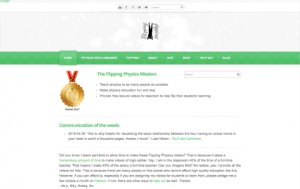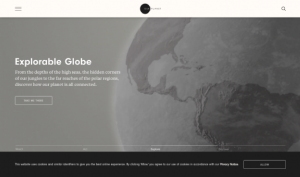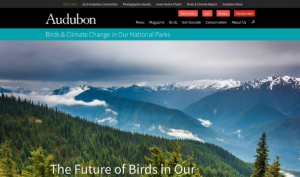General Interest
Back to Top
|
 |
|
Dictionary of Medieval Names from European Sources
|
Science |
|
Writers, historians, linguists, and the generally curious may all enjoy the Dictionary of Medieval Names from European Sources (DMNES). This ongoing project "aims to document all given names recorded in European sources written between 500 and 1600." As its name suggests, visitors to DMNES will find a wealth of information on hundreds of first names that the project's scholars have traced back to Medieval European usage. Many of these names are still commonly used today, such as Anthony and Elizabeth, but many others, such as Brunissende and Dadbert, may be less familiar. Each name's entry contains (when known) its standardized form, gender association, linguistic etymology, and important medieval namesakes. Also included are citations of medieval literature that used the name, including the geographic area, language, year, spelling variants, and any diminutives or nicknames, along with other information. Visitors may browse the dictionary alphabetically, and the project also provides a useful guide to help understand the entries' structure. First published in 2015 and followed by multiple updated editions, DMNES is led by Sara L. Uckelman, an assistant professor in the Department of Philosophy at Durham University in the UK. [JDC] |
|





|
|
 |
|
 |
|
Caselaw Access Project
|
Social studies |
|
Readers with an interest in the U.S. legal system may want to take a look at the Caselaw Access Project (CAP), a massive digitization project that makes 360 years of American court cases publicly available online. This large database was created "by digitizing roughly 40 million pages of court decisions contained in roughly 40,000 bound volumes owned by the Harvard Law School Library," adding up to approximately 6.7 million unique cases with the earliest from 1658 and the most recent from 2018. Visitors can access this database through the CAP's open-access API, which the project states is "the best option for anybody interested in programmatically accessing our metadata, full-text search, or individual cases." CAP also offers a bulk download option for readers who need a large collection of cases. It should be noted that, while all CAP's data is freely available to the public, accessing the full text of a case requires registering for an account and at the time of this write-up visitors are limited to 500 cases per day. Launched in October 2018, CAP is the result of a collaboration between the Harvard Law School's Library Innovation Lab and Ravel Law, a legal research company owned by Lexis-Nexis. [JDC] |
|





|
|
 |
|
DigitalNZ
|
Social studies |
|
The online portal DigitalNZ describes itself as "the search site for all things New Zealand" and with over 30 million items from more than 200 organizations in its collections, that claim is very likely justified. First launched in 2008 with an updated website released in 2017, DigitalNZ "aim[s] to be the simplest public website through which people can access reliable New Zealand material, some of which is trickier to find in other search engines." Visitors can search this project's vast collection by keyword directly from its main page, or they can go to the explore page to browse DigitalNZ by content category, usage rights (e.g. share, modify, commercial, or all rights reserved), date, place, and other factors. Readers can also group items together and build a story around them on DigitalNZ by adding their own captions and notes to the items, and the site highlights several stories on the main page as examples. To aid visitors in navigating and using its large collection, DigitalNZ also offers several help guides with search strategies, tips on creating stories, and more. [JDC] |
|





|
|
 |
|
SkillsCommons
|
Vocational Education |
|
Educators and learners in a variety of industries, particularly those at the community college level, may be interested in SkillsCommons, a repository of Open Education Resources (OER) aimed primarily at workforce development. This digital library initially launched in 2014 and contains a wide variety of learning materials produced by the over 700 community colleges that have been grantees of the U.S. Department of Labor's Trade Adjustment Assistance Community College and Career Training (TAACCCT) program. Here, visitors can find OER syllabi, online and hybrid courses and modules, assessment tools, assignments, and other teaching materials, all of which are free to reuse, adapt, and redistribute. This vast array can be browsed by material type, industry, occupation, institution, and more, with most of the contents intended for learners at the associate degree or certificate level. First-time visitors may want to check out the showcases section for an introduction to SkillsCommons' contents, and an extensive support section with explanations, tutorials, and FAQs for using the repository is also available. The SkillsCommons website is currently designed and managed by MERLOT (featured in the 3-01-2019 Scout Report) and California State University on behalf of the TAACCCT program. [JDC] |
|





|
|












